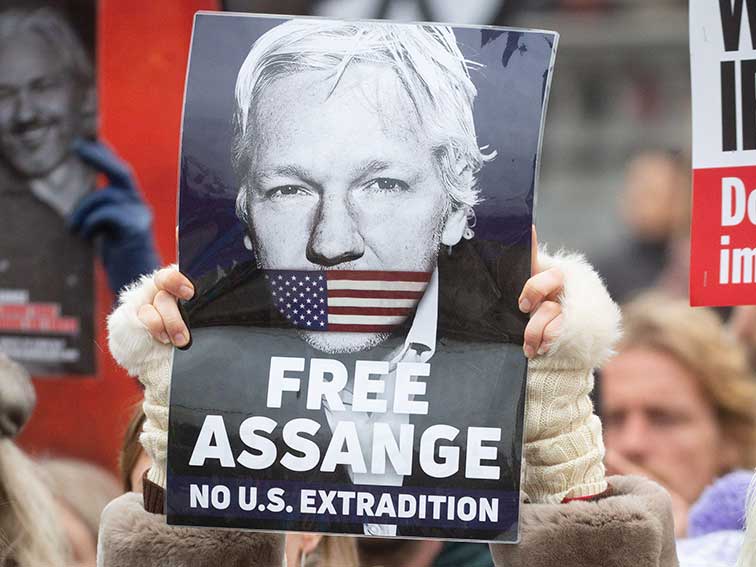
Or will vindictive elites exposed as war criminals in documents Assange released and who engaged in deep-reaching smear campaign directed against him try to lock up the heroic truth-teller forever?
On November 28, The New York Times, Der Spiegel, The Guardian, Le Monde and El Pais sent an Open Letter to the world, stating that the “U.S. government should end its prosecution of Julian Assange for publishing secrets.”
This letter is unforgivably late. Julian has been buried alive for more than a decade. From all reports he is in terrible condition. Of course, in this country, we have become tolerant of interminable prison sentences, only discovering the innocence of the victims long after their lives have been destroyed.
In the letter, these “papers of record” make no mention of their part in the destruction of this human being. They even have the gall to remind us of their own reservations regarding Julian’s case, questions about redactions and hacking, issues which were definitively put to rest years ago, during trials, hearings and recanted testimony. Moreover, they themselves participated in the smear campaign, which turned Julian into a pariah, neglected and rotting away in hideous conditions which have been identified by the UN as torture.
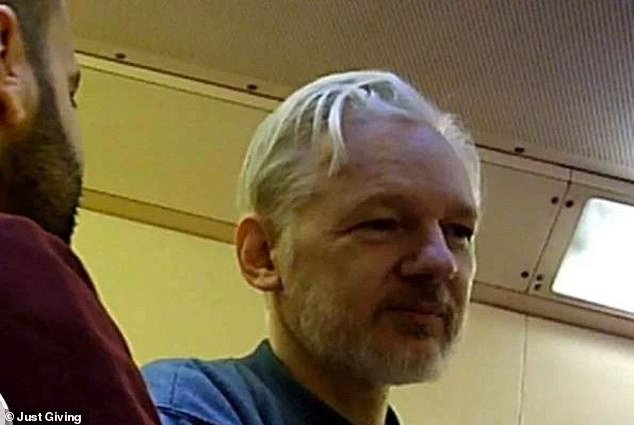
Perception management, according to the Department of Defense Dictionary of Military and Associated Terms, consists of “actions to convey and or deny selected information to…audiences to influence their emotions, motives and objective reasoning …ultimately resulting in behaviors and official actions favorable to the originator’s objectives. In various ways, perception management combines truth projection, operations security, cover and deception and psychological operations.”
How well perception management works is illustrated by Nils Melzer, UN Special Rapporteur for Torture from 2014 to 2022 who published a book this year, The Trial of Julian Assange.
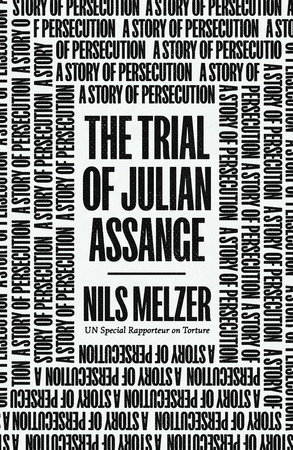
During his career, Melzer interviewed hundreds of torturers, victims of torture, prisoners of war, and other people subjected to cruel, inhuman or degrading treatment, around the world. He has had many years of experience discerning truth from lies, and how to tease out calumnies of all sorts. Nonetheless, when he received an appeal from Julian Assange’s legal team, in late 2018, requesting protection from inhumane treatment in his confinement at the Ecuadorian Embassy in London, Melzer tossed it aside.
His desk was piled high with torture allegations, prisoners at risk, possible war crimes. To him, ”like to most people around the world, Assange was just a rapist, nihilist, a hacker, a spy, a narcissist.” Melzer had more important work to do.
“Like so many, I was convinced that I knew the truth about [Assange], even though I couldn’t quite remember where that knowledge had come from.”
When a more urgent appeal came three months later, he forced himself to take a better look, and was instantly appalled at his own dangerously foolish prejudice:
“What troubled me most was the self-righteous ease and unshakeable certainty with which I had accepted a largely unsubstantiated narrative as unquestionable fact.”
Remarking that he had “never seen a comparable case where a person was subjected to nine years of preliminary investigation for rape without a charge being filed,” he immediately plunged into investigating not only the torture claim of Assange’s lawyers, but the character assassination which had so effectively turned him away.
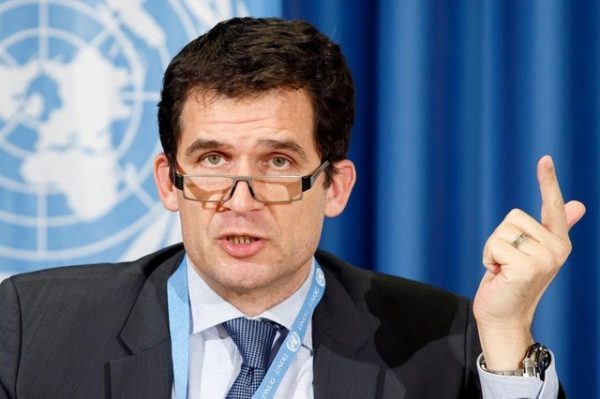
Assange’s integrity is convincingly revealed in his autobiography. People should not be deterred from reading it simply because it is unauthorized. Assange wrote it in 2011, while he was out on bail, and comfortably housed in his friend’s 18th century manor in Norfolk.
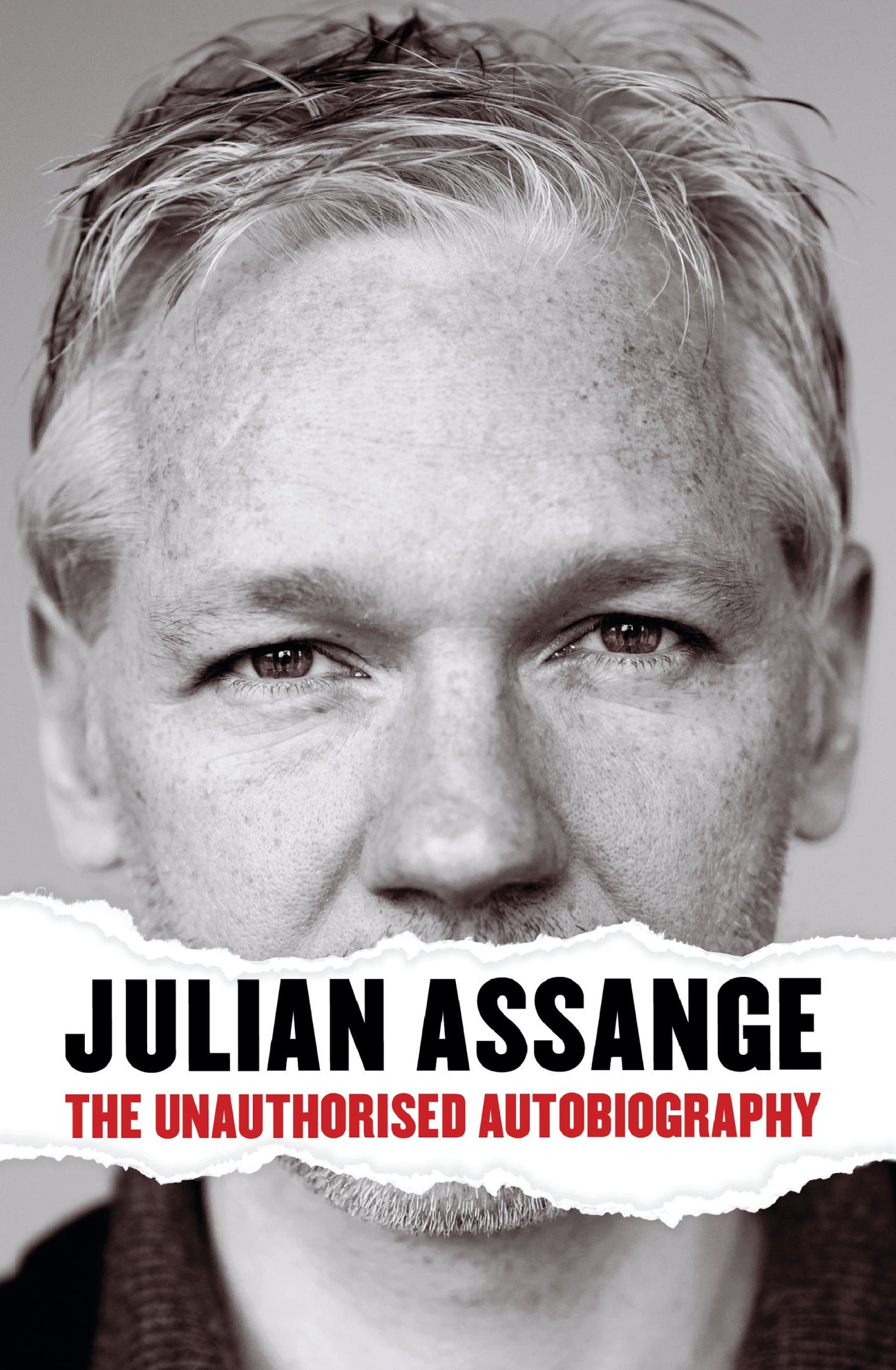
After a professional writer polished it up he read it through and repudiated it, in the same spirit as people burn their old diaries, with the comment, “All memoirs are prostitution.”
However, since he had already spent the advance on lawyers, we have the book and, to avoid being brain-washed, like Nils Melzer, with the smear campaign in which the “papers of record” so cynically participated, it is essential to read it.
Julian’s detractors, the reporters, politicians, interviewers and film makers, after hurling their calumnies at Julian, document their invective by referring to his “deeply traumatic” childhood, shaping his character: vain, greedy, arrogant, manipulative, liar, thief, autistic, “on the spectrum,” narcissistic, and so on.
The narrative contained in this autobiography, however, reveals a completely different person, a wonderful person: objective and analytical about his past; calm, lyrical and humorful. His portraits of people he met along the way show a keen observation and empathy:
“Early childhood is so important, I think. It gives you all your capacity for wonder. My mother had a gift for love and for making life no less interesting than it was. Magnetic Island (off Australia) was a freedom-haunted place, a beautiful Eden…a lot of my family’s energy was devoted to life outdoors…we swam every day and later I fished with my grandfather…I remember rolling down hills with my mother on her bike and as we sped along I would stretch out my hands and try to grasp fruit from the trees…”
He was surrounded by caring adults who answered his questions patiently and allowed him to think for himself. These adults were a vigorous part of anti-war movements and demonstrations against nuclear weapons testing in the Australian desert. They took Julian along. For a while Julian shared their lives of itinerant puppeteers, and the inevitable reaction of prejudice toward intruders in rural communities. Julian’s description of their house burning down on Magnetic Island describes weather and climate as a formative element in human nature:
“The atmosphere was clammy and the heat would make people lethargic; atmosphere is important in Australia and in many places, creating not only a physical state in people but a mental state as well… one day we came back up the hill to discover our house was on fire. About twenty people were standing around …nobody was attempting to put out the fire. I remember one of the neighbors laughing and saying we couldn’t stand the heat. It was all very sinister and I remember it took the fire brigade 40 minutes to come….That fire is my first very big and complicated memory…it involved levels of complication that would continue to fascinate me…I noticed for the first time in my life how authority could drag its heel to make a point and how bureaucracy could make a stone of the heart…there was something demonic in the way they let ‘nature’ take its course..”
With merriment he describes fleeing one of his mother’s lovers, father of his half-brother, in a dilapidated car with a noisy rooster and a hive of bees. This is the deeply traumatic experience which hostile media invokes as the source of all the personality disorders they heap on him. Julian himself referred to its psychic consequences, when he describes a period in Iceland when his “battery was low” and there was little daylight:
“In some very obvious way, I have been escaping from some dark pursuer since I was a child, and my mother took me across country to escape from her stalker.”
His public discussion of the experience, however, confirms a successful resolution. More importantly, Julian himself dispatched the pursuer: “Something in the way I said it ensured that we would never see him again.”

As do many children, Julian developed a fascination for taking apart machines. This extrapolated into a marvelous new apparatus, the computer, and he was off into a new dimension.
“By the time I was sixteen, the computer had become my world…it constituted not only a different way of being in the world, but a new way of being in your own skin…I was part of a generation that dug down into our machines, asking them to help us fight for justice in ways that would fox the old guard, even the protest element of the old guard, such as my parents, who didn’t know how to break the patterns of power and corruption that kept the world unfair.”
Together with teenage friends, he sat at his computer through the night. “To many of us it was like breaking into quarries or abandoned buildings. We had to see what was in there. It was the thrill of making it into the adult world and being ready to challenge it. That’s how hacking begins…keeping people out of the world’s computer systems was, for the people who ran them, a matter of control, much as Orwell understood the meaning of state control. And it was only a natural progression for us to go to work on them as part of our youthful attempt to explore the world…while inside you would hack into some other computer system somewhere else in the world—typically, for me at the time, it was the Pentagon’s 8th Command Group computers. You’d dive down into its computer system…projecting your mind all the way from your untidy bedroom to the entire system along the halls and all the time you’re learning to understand the system better than the people in Washington…awesome…”
These teenage hackers never harmed anyone, they never stole anything except a little free phone time. They were honorable hackers. They carefully repaired any damage their entry might have caused. Nevertheless, he was finally discovered and arrested. His hacking career ended.
So he went to school, Melbourne University, where he was bewitched by quantum mechanics.
“There is something beautiful in the truth revealed by math, something perfect and just, and I grew experienced in the study of that, not just the problems themselves but the entire moral scope of quantum mechanics…there was a research project in the department to study sand, because the Americans were dealing with sand as part of their adventures in the Middle East. Some woman came to give us a talk about how beautiful it had been to take part in the testing of military hardware and assisting with the flying of the cargo planes that bombed retreating Iraqi troops…I thought ‘Why are we sitting here listening to this mass murderer?’ I began to see how the universities were being used…for military profiteering…everything was coming together in my head, the clarity of mind that quantum mechanics forced upon me, my ideas about cause and effect, my horror at military outrages, and my increasing insights into Western foreign policy….I shared the view with a handful of computer scientists around the world that quantum mechanics offered a methodology for understanding justice.”
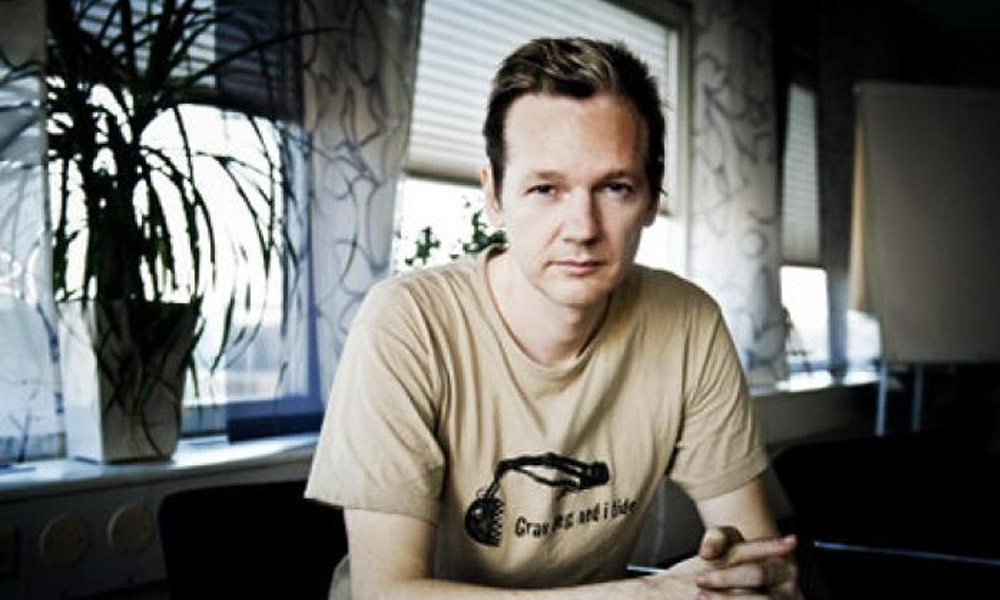
Assange used the metaphor of a pipeline: ”Let us imagine that there is a pipeline that allows a flow of material towards what provides for a state of justice…if material is suppressed, we must see it as a blockage…in the future, there could be a new way of providing optimal flow between observers and actors…to make agencies watchable, and to break their hold on information maintained by governments and their collaborating fourth estates…we cannot realize the basic rights that underpin justice in a world of concealment, secrecy and lies…I have a single goal, not a very original one but a definite goal to my life which is to help in the creation of a more just society to live in…I believe we have an innate yearning for justice. We have an inert aversion to censorship. And the Web can speak to that.”
So the former hacker set up WikiLeaks. It was dedicated to journalistic honesty. Honesty was in fact WikiLeaks dogma. Sources were meticulously checked. WikiLeaks had established a system whereby he could receive information, source material, while keeping whistleblowers safe.
And, as soon as material began to pour through the pipeline, the smear campaign started.
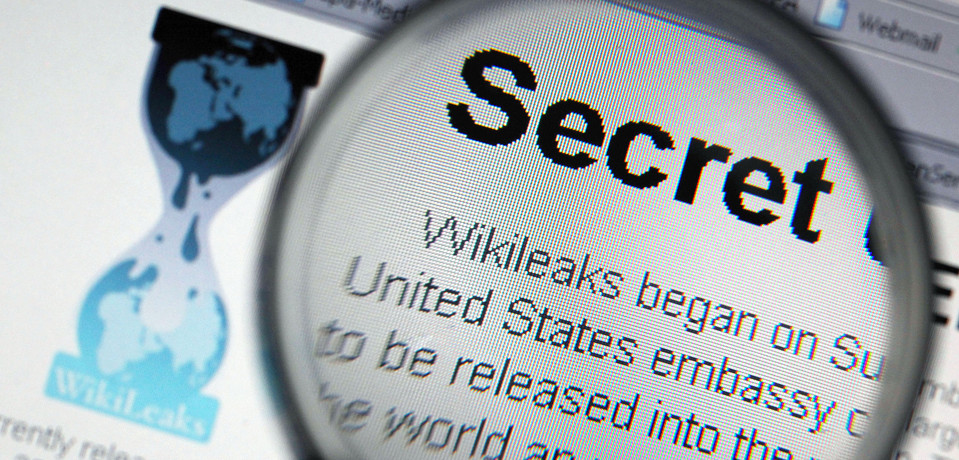
WikiLeaks was fastidious in removing the names of individuals who might be exposed and hurt by WikiLeaks publications. In July 2010, it put the cables and logs online for safekeeping.
In February 2011, a journalist from The Guardian was given the password to the documents for perusal purposes, which he allowed to slip. When, as a result, Der Freitag, a German weekly, published unredacted documents, WikiLeaks, recognizing its own efforts at redaction were now useless, released all the Cablegate documents, with the exception of the 15,000 pieces which were actually classified.
About redaction, Assange stated:
“One has to understand the primary reason we set up harm minimization procedures. It’s not primarily because the material we release will have a reasonable risk of producing harm as a result of disclosure. That’s very rare. Rather, there is a probable risk that if we don’t, our opponents will opportunistically attempt to distract from the revelations that we have published, by instead speaking about potential for harm and thus distract from the impact of the material.”
Indeed. This is exactly what happened. In his 2011 essay “Dealing with Assange and the Wikileaks Secrets” Bill Keller, then-Executive Editor of The New York Times, remarked, “the story of this wholesale security breach outgrew the actual contents of the secret documents.”
The smear campaign against Assange and WikiLeaks began shortly after the release of the Collateral Murders video. Bill Keller’s above-cited essay is thoroughly contemptuous of Assange. It is clear he has no understanding of Wikieaks’s noble aspirations. It describes his appearance in a demeaning way, calculated to generate disgust (“looked like a bag lady…smelled as if he hadn’t bathed in days”) and then ridicules his change in presentation as the objective changes to engagement of mainstream media in communicating the revelations:
“Assange was transformed by his outlaw celebrity. The derelict with the backpack and sagging socks now wore his hair dyed and styled, and he favored fashionable skinny suits and ties. He became kind of a cult figure for the European and leftish and was evidently a magnet for women.”
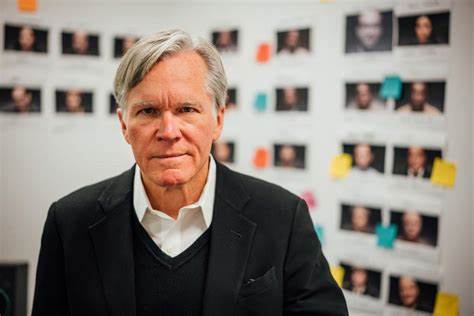
Completely ignoring the fact, vital to Assange’s defense, that he was a publisher, a journalist, an editor, The New York Times and The Guardian, with the mass of war logs and cables, all provided by WikiLeaks in their laps, “discussed the complexities of assuring an appropriate distance from Julian Assange. We regarded him throughout as a source, not as a partner or a collaborator…”
The New York Times described Assange’s vigilant protection of his source as “coy.” It describes him as “manipulative,” “arrogant,” “conspiratorial,” “volatile.”
Other media caught on, and referred to him as a shady hacker, a peddler of half-truths, a “man of enormous self-regard and slippery ethics…” and so on. A betrayal, and a devastating blow to Assange’s reputation occurred when The New York Times published the raw Swedish police report on Assange’s Swedish sex scandal, hyped to smear.
When the Collateral Murders video was revealed, it shocked the world. The war logs followed, and Assange was immediately accused of being a murderer.
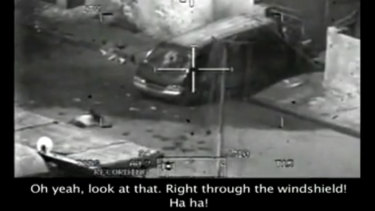
U.S. Chairman of the Joint Chiefs of Staff Mike Mullen remarked:
“Mr. Assange can say whatever he likes about the greater good he and his sources are doing—but the truth is he and his staff might already have on their hands the blood of some young soldier or that of an Afghan family.”
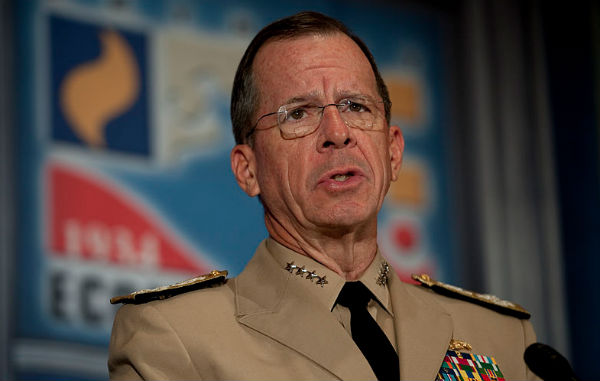
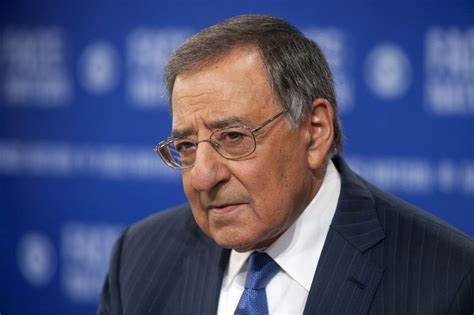
Former CIA director James Woolsey, former Arkansas Governor Mike Huckabee and Senator Lindsey Graham also spoke of the blood on Assange’s hands. Leon Panetta, former CIA director under Barack Obama, called Assange a spy, and declared:
“Assange is somebody who will sell somebody in his family if he thinks that, you know, that he is going to get some attention…he is a high-tech terrorist.”
Former Attorney General Eric Holder:
“We have a very serious criminal investigation that’s under way and we’re looking at all the things that we can do to stem the flow of this information.”
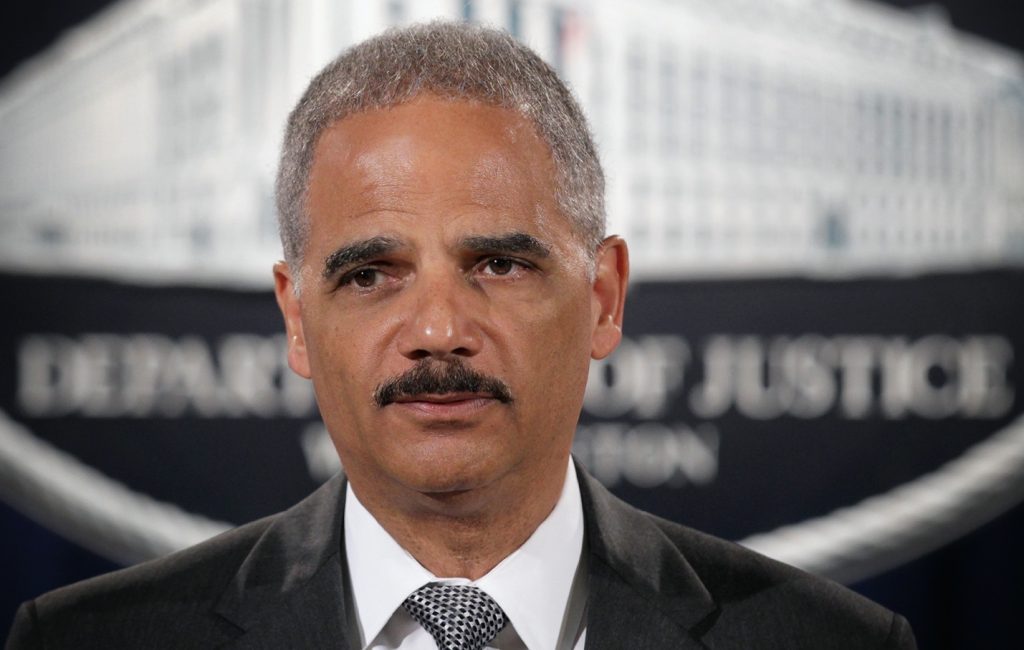
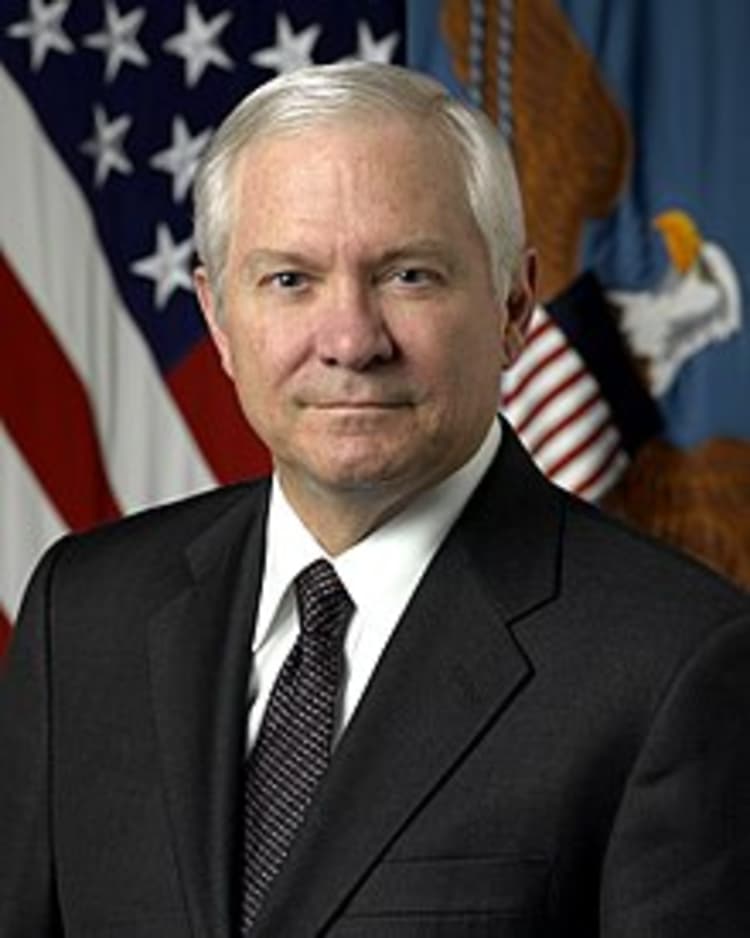
The U.S. Defense Secretary Robert Gates, claimed, in Washington: “The battlefield consequences are potentially severe and dangerous for our troops, our allies and Afghan partners, and may well damage our relationships and reputation in that key part of the world.”
(Later, in a letter to the Senate Armed Forces Committee, Gates admitted that a Pentagon review had “not revealed any sensitive intelligence sources or compromised methods.”)
Vice President Biden acknowledged that the releases had caused “no substantial damage,” other than being embarrassing for the U.S. government.
A number of movies were made about Assange, designed to smear. “We Steal Secrets” is one of them. To begin with, its title creates the false impression that WikiLeaks steals secrets.
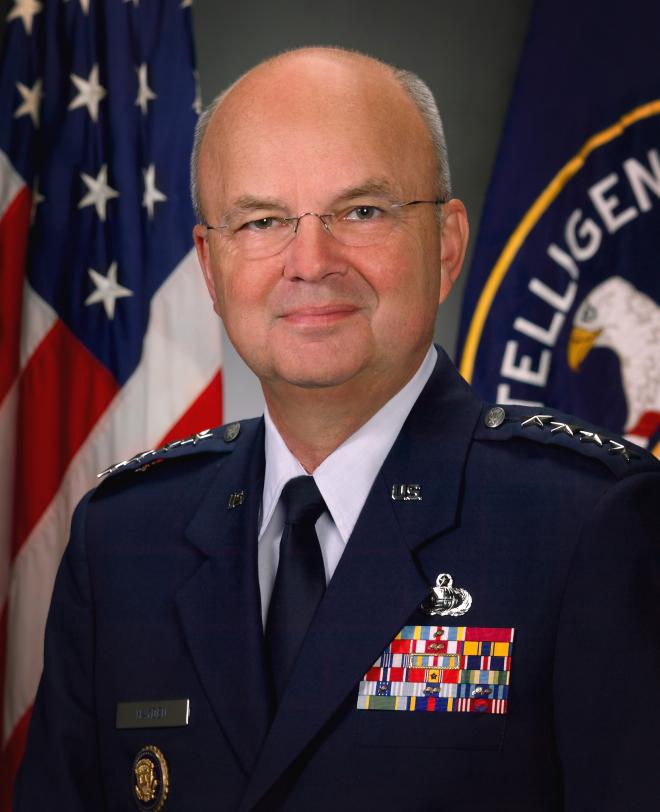
The phrase actually comes from a speech of Michael Hayden, predecessor of Leon Panetta at the CIA. Hayden believes that state secrecy is indispensable to what the CIA regards as “success” (viz., the effective completion of the murderous and criminal acts committed by the invaders revealed in the war logs, Collateral Murders and Cablegate):
“Look, everyone has secrets. Some of the activities that nation states conduct in order to keep their people safe and free need to be secret in order to be successful. If they are broadly known, you cannot accomplish your work. Now, I’m going to be very candid, right? We steal secrets; we steal other nations secrets. One cannot do that above board and be very successful for a very long period of time.”
The most powerful and effective slander came from Julian’s personal adventures in Sweden.
The most powerful and effective slander came from Julian’s personal adventures in Sweden. Two women with whom Julian had had sexual relations went to the police to ask (inexplicably, since he had promised to do it only hours earlier) if there were a way Julian could be compelled to take an HIV test. The police (also, inexplicably) turned this request for advice into an accusation of rape which hit headlines the next day.
Sexual allegations are smears which, despite exoneration, can mutilate a life forever. They are stigmas which, like strong odors, persist and overwhelm contradictory or more complicated information. The mainstream media are a willing solvent for poisons that cancel or brand their victims so deeply that discovering the truth requires effort, and restoring reputation is next to impossible.
Julian explains his thoughtless, but very ordinary, behavior in his unauthorized autobiography:
“The international situation had me in its grip, and although I had spent time with these women, I wasn’t paying enough attention to them, or ringing them back, or able to step out of the zone that came down with all these threats and statements against me in America. One of my mistakes was to expect them to understand this? I wasn’t a reliable boyfriend, or even a very courteous sleeping partner, and this began to figure. Unless, of course, the agenda had been rigged from the start.”
With the help of the UK, Sweden played Julian like a fish on a hook. It allowed him to leave Sweden, then called him back though refusing to promise not to allow extradition to the U.S. It never charged him, but kept him imprisoned in the UK for 9 years, during which time the case collapsed, and was finally dropped.
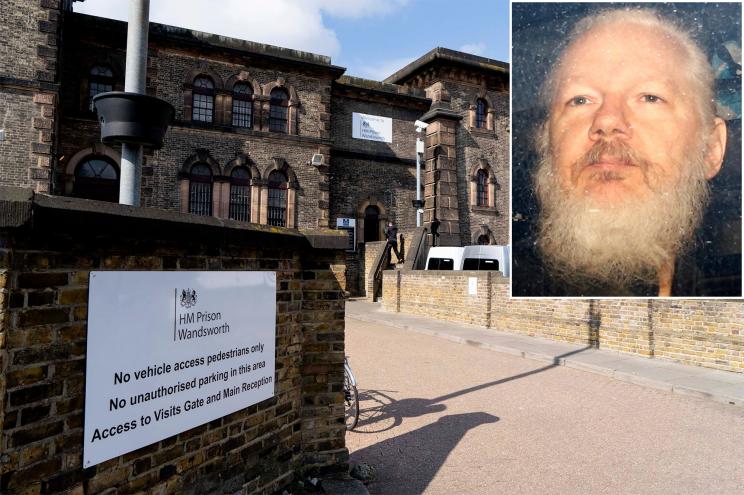
His native country, Australia, abandoned him shamelessly. After seven years of courageous hospitality, Ecuador finally betrayed Julian, and he fell down the cliff to his present desperate handhold, Belmarsh Prison and the British.

Now the Star Chamber show trial looms. The New York Times, The Guardian, Der Spiegel, Le Monde and El Pais have written their letter. Karine Jean-Pierre and John F. Kirby, White House and National Security Council press secretaries respectively, were asked, on November 28th, what the White House response to that letter was.
Kirby answered that the administration position was the same as it had been in 2012 when the war logs and Cablegate were released: that “those revelations in the public sphere were damaging to U.S. national security.”
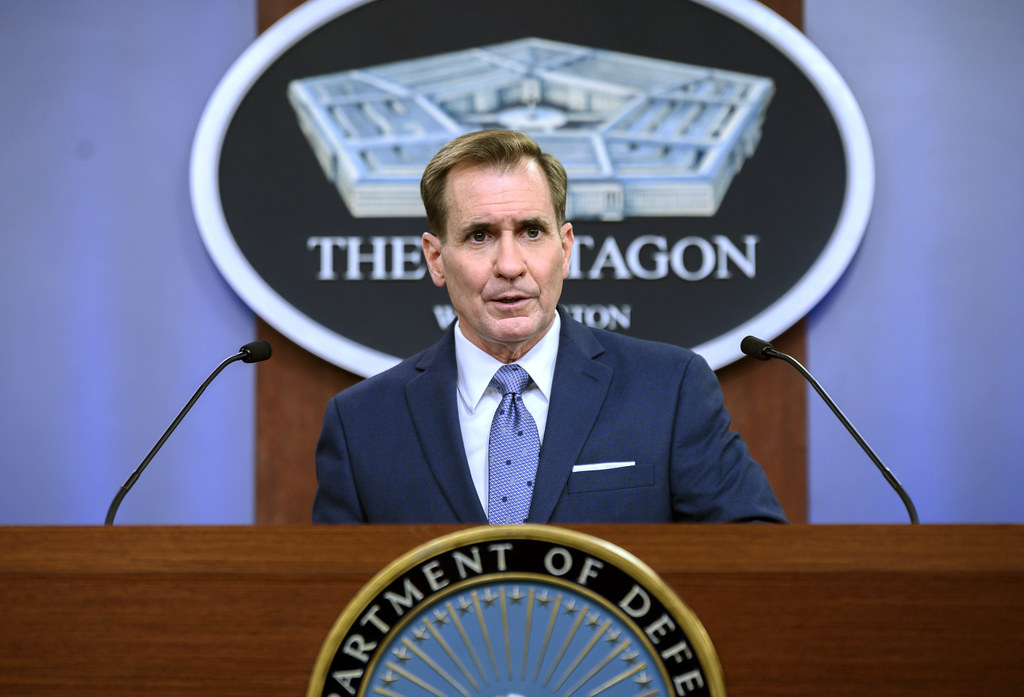
This of course contradicts President Biden’s comment quoted above, though perhaps his statement indicates a policy change will be initiated. Perhaps the “New York Times problem” which stopped Obama, that Assange cannot be prosecuted because The New York Times was equally guilty and therefore would have to be charged as well, has been resolved in some way.
Daniel Ellsberg revealed on December 6 that Assange sent him a “backup” of the war logs from Chelsea Manning and that, if Assange is to be prosecuted, he too (Ellsberg) should be prosecuted.
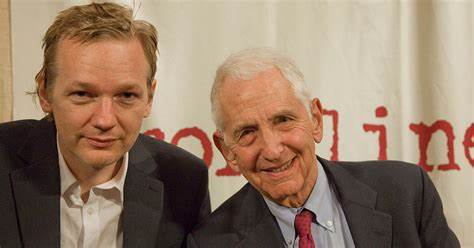
Many people are generally out to get Assange. Hillary Clinton, vindictive when apprised of the Hillary Leaks, declared “can’t we just drone this guy?”
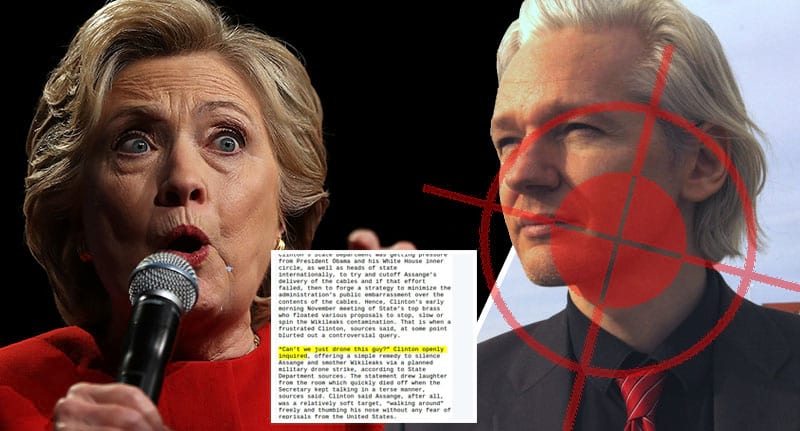
WikiLeaks exposed the phone call between Victoria Nuland and the ambassador to Ukraine in 2014, in which they discussed the direction and management of the 2014 coup in Ukraine.
Meanwhile, Assange is being droned in Belmarsh style: interminable isolation, humiliation, despair. Easier, for the colluding nations, than a Star Chamber affair. New York Times editor Bill Keller ends his 2011 article mocking Julian, who is “musing darkly” on his fears of extradition, regarded by the heartless Bill as vain fantasy:
“I would still have a high chance of being killed in the U.S. prison system, Jack Ruby style, given the continual calls for my murder by senior and influential United States politicians.”
At the end of his book, UN special rapporteur Nils Melzer sends his own message to the world, and to President Biden. He quotes former President Jimmy Carter, who once remarked “I did not deplore the WikiLeaks revelations. They just made public what was actually the truth. Most often, the revelation of the truth, even if it’s unpleasant, is beneficial…I think, almost invariably, the secrecy is designed to conceal improper activities, and not designed for the well-being of the general public.”

Melzer continues: “Even in the darkest room, the light of a single candle is enough for everybody to see. Julian Assange has lit such a candle with his work. He has exposed crimes, abuse and corruption that had been concealed behind a curtain of secrecy. It was only a brief glimpse, but sometimes a glimpse is enough to change our entire worldview. We now know that the curtain of secrecy exists and that a parallel universe of dirty secrets hides behind it. Secrets that many of us might prefer not to know, because the knowledge forces us to wake up, grow up and step up. Beyond the discomfort of disillusion, however, that same knowledge empowers us to carry out the systemic governance reforms required to save us from certain self-destruction. Each and every one of us can change the world through courageous action. To make the darkness disappear, we need not look elsewhere for the light. It is sufficient to let our own light shine, right where we are in our everyday life. To do this, all we need is the courage to be honest with ourselves and with the world.”

CovertAction Magazine is made possible by subscriptions, orders and donations from readers like you.
Blow the Whistle on U.S. Imperialism
Click the whistle and donate
When you donate to CovertAction Magazine, you are supporting investigative journalism. Your contributions go directly to supporting the development, production, editing, and dissemination of the Magazine.
CovertAction Magazine does not receive corporate or government sponsorship. Yet, we hold a steadfast commitment to providing compensation for writers, editorial and technical support. Your support helps facilitate this compensation as well as increase the caliber of this work.
Please make a donation by clicking on the donate logo above and enter the amount and your credit or debit card information.
CovertAction Institute, Inc. (CAI) is a 501(c)(3) non-profit organization and your gift is tax-deductible for federal income purposes. CAI’s tax-exempt ID number is 87-2461683.
We sincerely thank you for your support.
Disclaimer: The contents of this article are the sole responsibility of the author(s). CovertAction Institute, Inc. (CAI), including its Board of Directors (BD), Editorial Board (EB), Advisory Board (AB), staff, volunteers and its projects (including CovertAction Magazine) are not responsible for any inaccurate or incorrect statement in this article. This article also does not necessarily represent the views the BD, the EB, the AB, staff, volunteers, or any members of its projects.
Differing viewpoints: CAM publishes articles with differing viewpoints in an effort to nurture vibrant debate and thoughtful critical analysis. Feel free to comment on the articles in the comment section and/or send your letters to the Editors, which we will publish in the Letters column.
Copyrighted Material: This web site may contain copyrighted material the use of which has not always been specifically authorized by the copyright owner. As a not-for-profit charitable organization incorporated in the State of New York, we are making such material available in an effort to advance the understanding of humanity’s problems and hopefully to help find solutions for those problems. We believe this constitutes a ‘fair use’ of any such copyrighted material as provided for in section 107 of the US Copyright Law. You can read more about ‘fair use’ and US Copyright Law at the Legal Information Institute of Cornell Law School.
Republishing: CovertAction Magazine (CAM) grants permission to cross-post CAM articles on not-for-profit community internet sites as long as the source is acknowledged together with a hyperlink to the original CovertAction Magazine article. Also, kindly let us know at info@CovertActionMagazine.com. For publication of CAM articles in print or other forms including commercial internet sites, contact: info@CovertActionMagazine.com.
By using this site, you agree to these terms above.
About the Author

Ellen Taylor is a retired Physician Assistant who lives in Petrolia California and helps run a cattle, sheep and goat ranch.
She became interested in international affairs and war crimes while living in Nuremberg, where her father was Chief Prosecutor for the American Trials.
Ellen can be reached at ellenetaylor@yahoo.com.

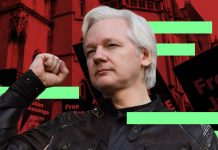
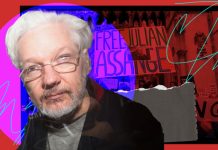
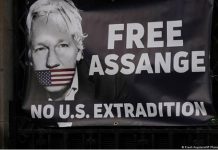
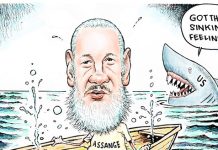
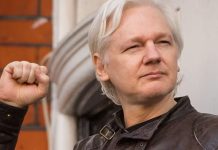
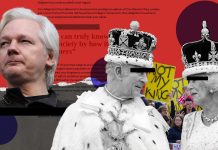
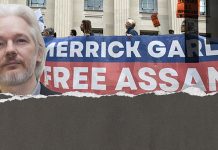
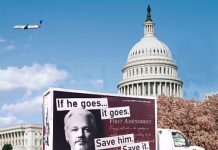

Thanks, Ellen Taylor, for this great article. One of Wikileaks important exposes is rarely mentioned, and I do so in my book “The Fight Against Monsanto’s Roundup: The Politics of Pesticides”, excerpted right here at Covert Action Magazine: Key pieces of information regarding the U.S. government’s worldwide advocacy (including the threatened use of its military) on behalf of Monsanto’s patented seeds exploded onto the internet via thousands of cables “liberated” by current political prisoner Julian Assange. The cables Assange published revealed massive U.S. government attempts on behalf of Monsanto, and its patents, to arm-twist countries throughout the world, along with its attempts to squelch opposition to GMOs (genetically modified organisms). The cables showed U.S. diplomats applying financial, diplomatic, and even military pressure on behalf of Monsanto and other biotech corporations.
In a 2007 cable marked “confidential,” Craig Stapleton, then U.S. Ambassador to France, advised the U.S. to prepare for economic war with countries unwilling to introduce Monsanto’s GM corn seeds. He called for retaliation, to “make clear that the current path has real costs to EU interests and could help strengthen European pro-biotech voices. In fact, the pro-biotech side in France…[has] told us retaliation is the only way to begin to turn this issue in France.”[27] The U.S. diplomatic team recommended that “we calibrate a target retaliation list that causes some pain across the EU since this is a collective responsibility, but that also focuses in part on the worst culprits.”[28]
Craig Stapleton [Source: wikipedia.org]
In another cable, this one from Macau and Hong Kong, a U.S. Department of Agriculture director requested $92,000 in U.S. public funds for “media education kits” to combat growing public resistance to genetically engineered foods. It portrays attempts to mandate the labeling of GMOs as a “threat” to U.S. interests, and seeks to “make it much more difficult for mandatory labeling advocates to prevail.”
The cables released by Wikileaks revealed that officials in the Obama administration, particularly in Hillary Clinton’s State Department, intervened at Monsanto’s request “to undermine legislation that might restrict sales of genetically engineered seeds.” Under Hillary Clinton, the U.S. State Department was so gung-ho to promote GMOs that Mother Jones writer Tom Philpott called it “the de facto global-marketing arm of the ag-biotech industry, complete with figures as high-ranking as former Secretary of State Hillary Clinton mouthing industry talking points as if they were gospel.”
The New York Daily News reported that State Department officials under Hillary Clinton were actively using taxpayer money to promote Monsanto’s controversial GMO seeds around the world.
The fight against GMOs and Roundup is partly a propaganda war; U.S. officials recommended pro-biotech and bio-agriculture DVDs be sent to every high school in Hong Kong.[29]
The cables reveal the joint strategic planning of Monsanto and the U.S. government. In one series, Monsanto concluded that northern Thailand would be an ideal location to cultivate genetically engineered corn for export to other countries, due to the area’s very low labor and infrastructure costs. [See more at https://covertactionmagazine.com/2022/01/19/the-worlds-most-evil-company-may-lose-a-few-court-fights-but-will-keep-on-poisoning-and-killing-millions-of-people-with-its-carcinogenic-pesticide-roundup/ ]
[…] Will Belated Open Letter by the NYT and other Media Outlets Be Enough to Compel Julian Assange’s R… […]
I seriously doubt it, these are the papers that did the hatchett job on Assange in the first place, especially the Guardian, the worst piece of ‘journalistic’ crap and mouthpiece for the British security state.